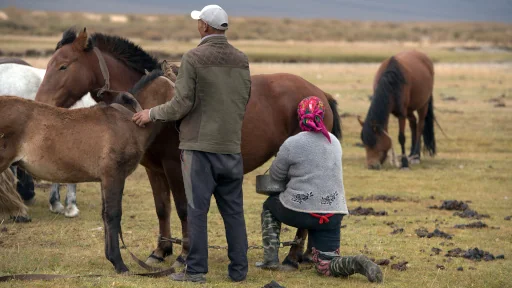Opinion Editorial Archive February, 2022: The Gift of Civilization

In Doris Lessing's science fiction novel The Making of the Representative for Planet 8 a species has to adapt to the effects of climate change until a new planet can be made ready to become their new home. It was published forty years ago last month. If the current schedule is upheld, next month will see the next major step in the science fact of the making of the representative for planet 3 (Earth is the third planet from our sun).
Whom would you choose — if you lived in a democracy — as that representative? Self-appointed front runner Elon Musk? Rafa Nadal? Not Boris Johnson I'd wager. How about King Willem-Alexander of the Netherlands? Last month he retired the Dutch royal carriage indefinitely. The carriage bears a painting depicting a European man offering a book to a non-European boy. It was intended by its creator to represent the gift of civilization that colonial powers brought to indigenous people.
During European colonization the book would have been a Christian bible. If giving bibles were an example of the real gift of civilization then that gift keeps on giving. With few exceptions colonizing countries are the richest and colonized countries the poorest in the world today. We learned last month how the gift keeps on giving when it was reported that these poorest countries had to reject the gift of Covid-19 vaccine doses last December. Over a hundred million doses were rejected because they were close to the end of their shelf life.
Last month also saw how the gift has kept on giving in Canada. There, C$ 40 billion was set aside following a legal ruling to reform and compensate for past mistreatment under the child welfare system as it has been applied to indigenous Canadian children. Unlike King Willem-Alexander, who stated there was no point in condemning past colonial abuses, Indigenous Services minister Patty Hajdu at least acknowledged the suffering that such abuses have caused. Perhaps we have a new candidate for the representative for planet 3.
Then again, a better candidate could be Tawy. He is a young, indigenous Zo'é man from the Brazilian Amazon. A photo released last month (taken a year previously) showed him carrying his father through the jungle so they could both be vaccinated against Covid-19. He had carried his father for about six hours before reaching the nearest vaccination post.
To understand why this month's photo shows the real gift of civilization we must look much farther back in history than European colonization. Civilization, as we have come to understand that term, has been established independently only a few times in human history. In each case indigenous knowledge was the key enabler. The catalyst was domestication — first of plants then of animals.
It is debated over when and where horses were first domesticated. It was certainly in Central Asia and may have been in Kazakhstan. If so, the indigenous Kazakh in this photo may be descended from the first people to ever milk or ride horses. The man is preparing the foal to suckle in case its mother does not lactate immediately. Such indigenous knowledge was critical to domestication every time it happened.
Domesticating horses changed human history more than any other form of domestication. How many ancient wars might not have been won without them we will never know. We can be sure, though, that Dutch colonists thought they were civilized partly because their royal carriage was drawn by horses.
At the end of Lessing's novel the people of plant 8 all perish. The representative becomes instead their collective consciousness. Planet 3 currently has no collective consciousness. If we ever give the gift of civilization to planet 4 and beyond, let's hope that our representative is educated with indigenous knowledge.
If you enjoyed reading this month's opinion editorial, please consider supporting independent, advertising-free journalism by buying us a coffee to help us cover the cost of hosting our web site. Please click on the link or scan the QR code. Thanks!

